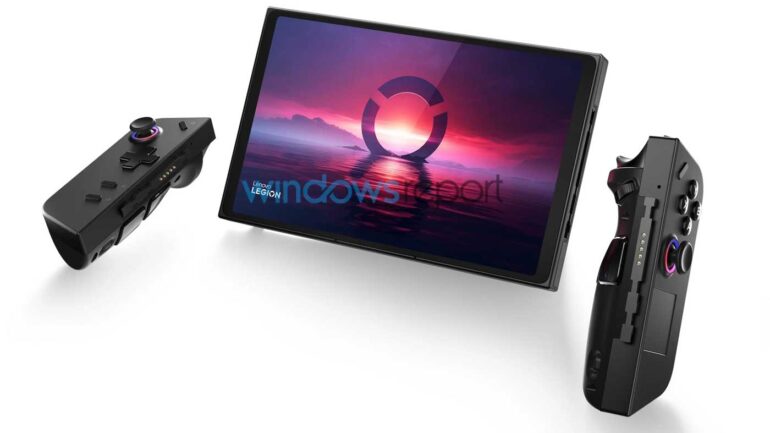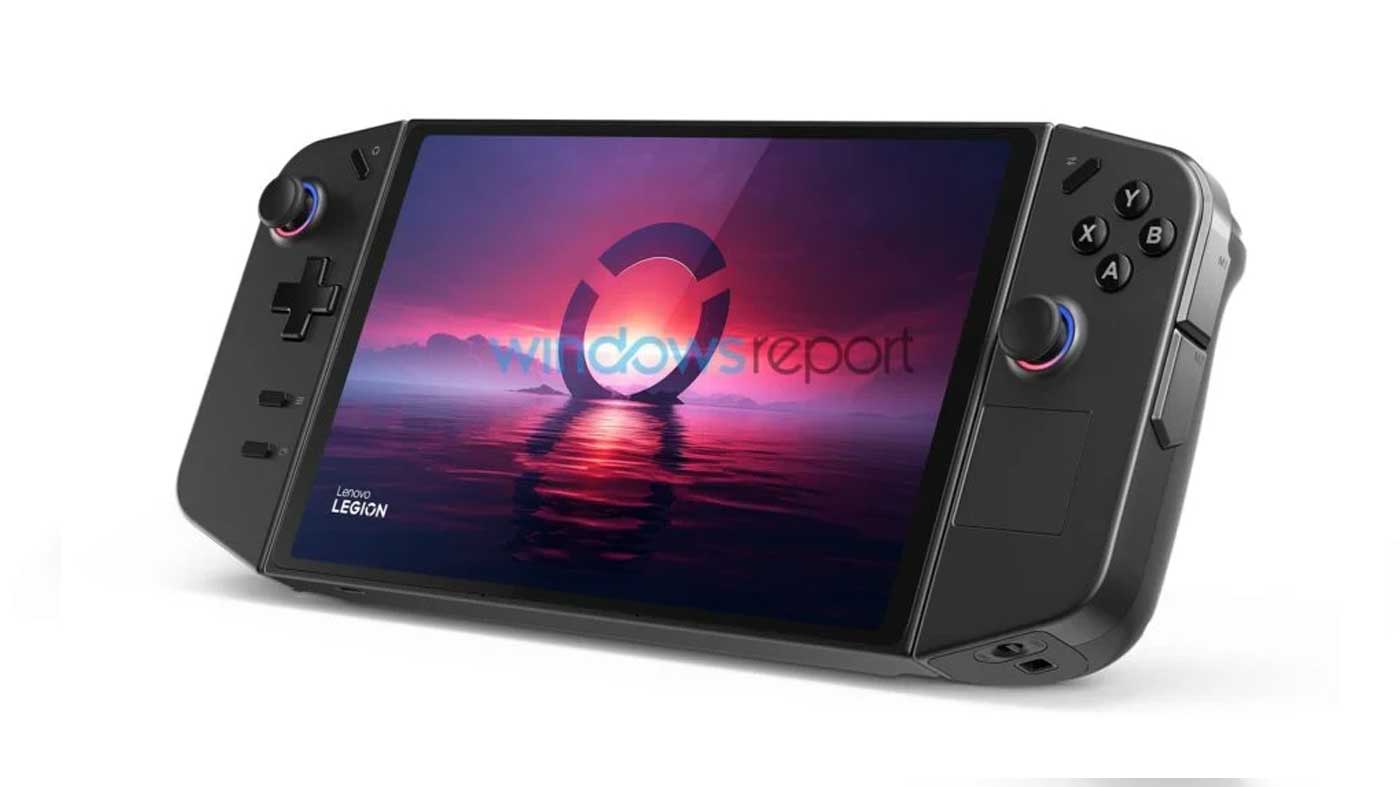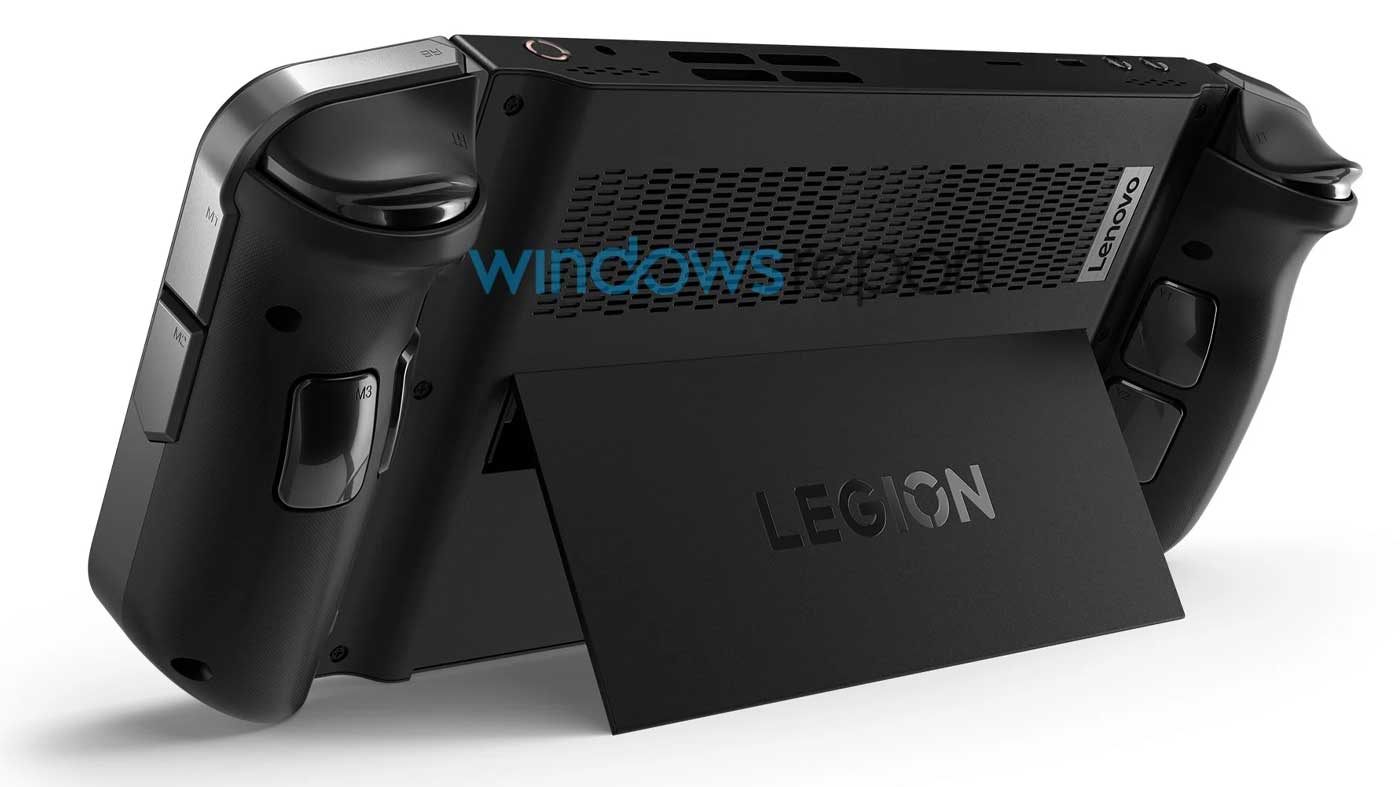Update: Windows Report has shared what it claims are images of Lenovo’s apparent entry into the rapidly-growing PC gaming handheld market and, well, it’s definitely got some similarities to another iconic handheld…
The device, which is still reportedly dubbed the Lenovo Legion Go, doesn’t look all too dissimilar from competing devices like the Steam Deck, Ayaneo range or the ASUS Rog Ally, with the one distinction that it features very Nintendo Switch Joy Con-like removable controllers on either side.
It’ll apparently be running Windows 11 on its 8-inch screen, powered by AMD’s new Phoenix chips, but none of that seems as exciting as the potential of those split controllers – it also has a very Switch OLED-style stand built into the back. Of course it’ll be going above and beyond the Switch’s capabilities with AAA PC gaming, and even has a Steam Deck-style touchpad on the right Joy Con controller.
Take a look at a couple more images shared by the outlet:
Image: Windows Report
Image: Windows Report
Original Story:
Windows Central is reporting that Lenovo could be next in line to enter the steadily-swelling handheld PC gaming market with a device apparently called the Legion Go.
The outlet’s sources say it’s a Windows 11 handheld sporting an 8-inch display and AMD’s new Phoenix chips, processors designed to be ultra-thin and focused on gaming, AI, and graphics for ultrabooks. Lenovo reportedly had an Android-based device in the works that it never took to retail, with prototypes having surfaced a few months ago, so this could represent a pivot from that to something more competitive in the space, but even if these reports are true there’s no guarantee this device will see a public release either.
If accurate, the Legion Go will face some stiff competition with all manner of brands entering the fray from the recently-released ASUS Rog Ally to long-time staples like the Ayaneo devices and of course Valve’s Steam Deck. With more devices, and especially more Windows-based devices, it’ll hopefully continue to push Microsoft to better the experience for users of these devices.
EXCLUSIVE: According to our sources, Lenovo is working on a Steam Deck competitor too. ?
Details: https://t.co/NTtTHJIrrO #PCGaming #SteamDeck #Steam #ASUSROGAlly #ROGAlly
— Windows Central Gaming (@WinC_Gaming) July 31, 2023
Lenovo’s closest competition in the space would likely be the ASUS Rog Ally, which launched just under a couple of months ago at $1,299 and sporting the full Windows 11 experience along with impressive specs.
We said in our review of the ROG Ally, “All-in-all, the release of the ASUS ROG Ally feels like a significant step forward in this category. It’s the second major company to join the space, and provides something totally different to that of the Steam Deck. It’ll be exciting to see where this space goes in the coming months and years, and I really hope ASUS continue to tinker with things and improve this device, as I feel like there is so much potential to still be realised, even beyond the fantastic experience that it is whilst gaming.”






